【FOCUS】Innovation Acts in Climate Change
Climate change is a long-term threat for human beings and the situation is urgent to solve. Climate change will bring high risks to economic and social systems and ecological and environmental systems. This week In Focuses presents five innovative projects to address climate change in urban development.
Senville, Spain
Cartauja QANAT: Recovering the street life in a climate changing world
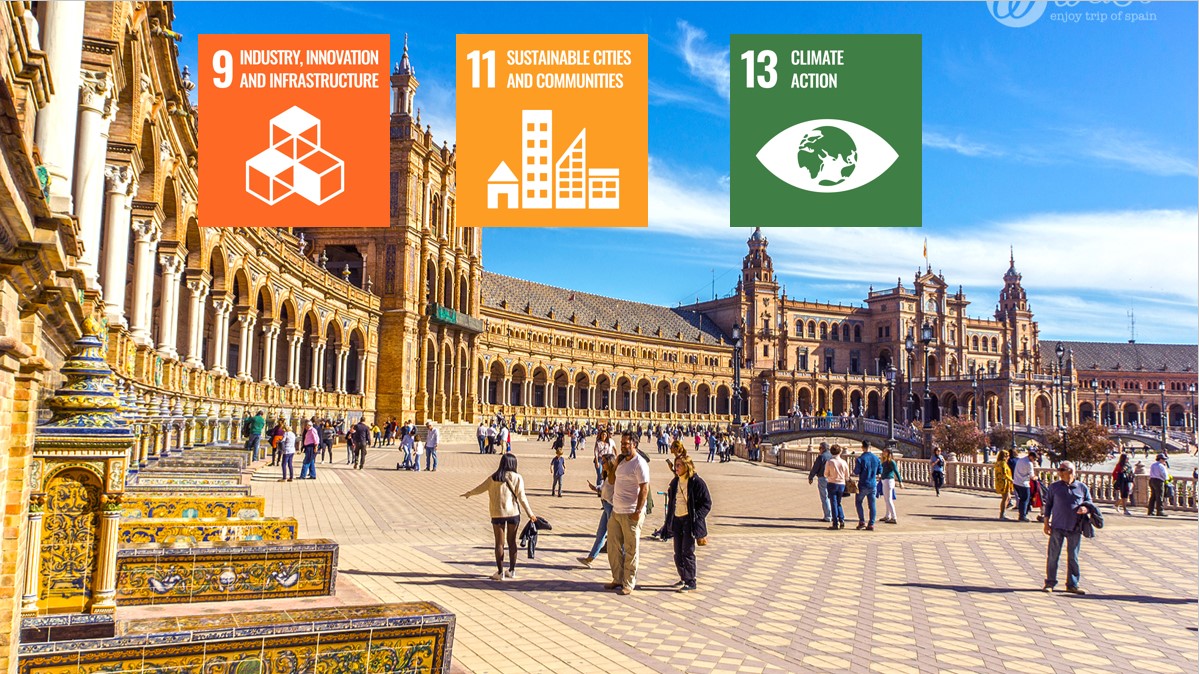
Seville is the largest city in southern Spain. In summer, it is possible to exceed 50ºC, although the predictions announce an increase in the average temperature in Seville of 4.5ºC and a reduction in rain of 20%. The quality of life, the economic development and the welfare of the city is directly related to the climate.
Cartuja Qanat is an innovative urban transformation project which will encourage using the street as a social facilitator, and will boost it and involve the entire ecosystem of the city (public, private and citizen agents) in this transformation. This new model of urban governance will make it easier to introduce such models in their expansion through the city in order to change the appearance and functionality of the street concept and its future evolution over the next 15 years. It will develop a series of actions and elements that, once they are integrated, will act as social facilitators. They will all be used to improve universal accessibility and to ensure that surface interventions on existing urban developments succeed in reconfiguring the urbanism carried out.
It is therefore an innovative experience of urban design that will facilitate Seville's adaptation to future climate conditions, help Andalusia become an urban reference in adapting to climate change.
More info:
https://uia-initiative.eu/en/uia-cities/sevilla
https://www.pctcartuja.es/en/proyecto/cartuja-qanat
Amsterdam, Netherland
RESILIO - Resilience network of Smart Innovative climate-adaptive rooftops
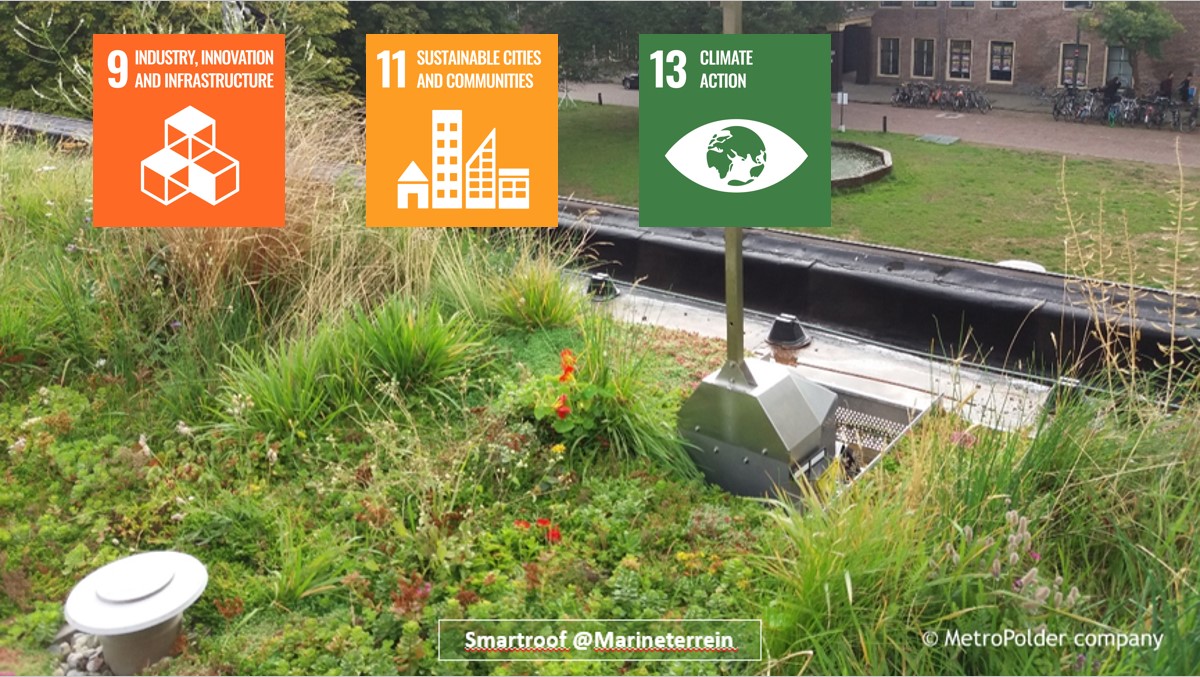
Amsterdam is experiencing the effects of climate change: flash floods due to heavy rainfall, higher temperatures, and increased droughts. The RESILIO project aims to address critical urban climate challenges related to flooding, heat, water supply, energy consumption and urban livability by repurposing the rooftops of climate-vulnerable neighbourhoods of Amsterdam.
Amsterdam is going to build smart blue green roofs on 10,000m2 of which at least 8,000 m2 will be on social housing rooftops. Blue stands for water, green for plants. On these roofs extra water can be stored under the green plant layer. This water buffer layer reduces the chance of damage to houses and their surroundings in case of heavy rain and increases the cooling effect and survival rate of the plant layer in case of drought. The roofs have a “smart flow control” that anticipates heavy rain or drought, releasing or retaining water accordingly. The roofs are connected in a network, enabling remote regulation of rooftop water levels based on weather forecasts and water management settings.
Regular roofs turned into blue green roofs should reduce urban heat effect, energy consumption at building level, sewer overflows, urban flooding. They will provide more urban green spaces thereby increasing biodiversity and citizen wellbeing. Empowering 1500 residents of all socioeconomic levels to engage through bottom-up and co-creation approach will advance resilient climate strategies and governance.
More info:
https://uia-initiative.eu/en/uia-cities/amsterdam
Paris, France
OASIS - School yards: Design and transformation of local urban areas adapted to climate change
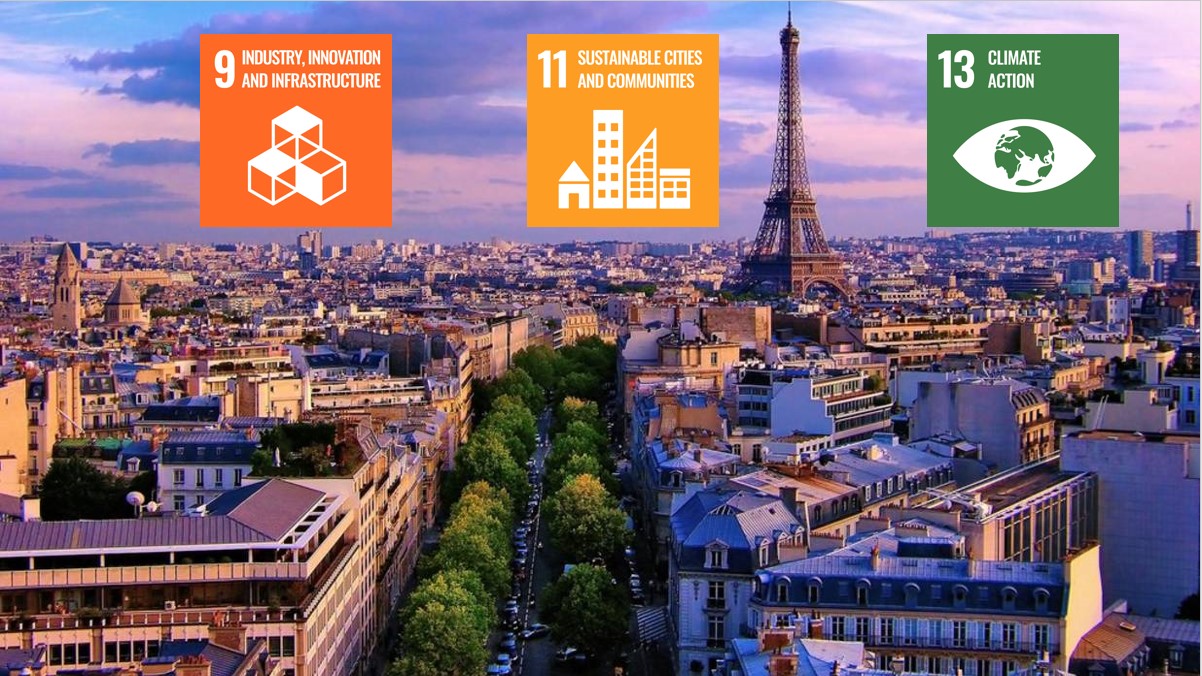
In Paris, by the end of the century, Météo-France projects an average annual temperature increase of 1 ° C to 4 ° C. The heatwaves are amplified by the phenomenon of Urban Heat Island (UHI). The heatwave of 2003 caused 70 000 deaths in Western Europe. Climate change will also cause an increase in the frequency of heavy rainfall as well as a 10 to 15%, increase of the risk of flooding. Thus, it is necessary to sustainably refresh the dense urban spaces and protect the most vulnerable populations.
In the inner city, there are only 5.8 m² of green spaces per capita. The network of 656 schools and 115 high schools managed by the city presents an opportunity. In total, schoolyards cover 73 hectares of asphalted and impervious surfaces, which participate in the heat island effect and do not favour the management of rainwater. Transforming Paris schoolyards is an opportunity to provide answers to climate and social challenges. The OASIS project plans to transform 10 schoolyards into cool islands through innovative techniques, nature based solutions, in an integrated approach.
The results of OASIS will reduce health risks associated with heatwaves and foster social cohesion at the neighbourhood level. Eventually, we expect the project to reinforce social bonds in the neighbourhood, by offering new accessible spaces, developing new activities and implementing an inclusive democratic protocol.
More info:
https://uia-initiative.eu/en/uia-cities/paris-call3
Melbourne, Australia
Climate Change Adaptation Strategy Refresh 2017
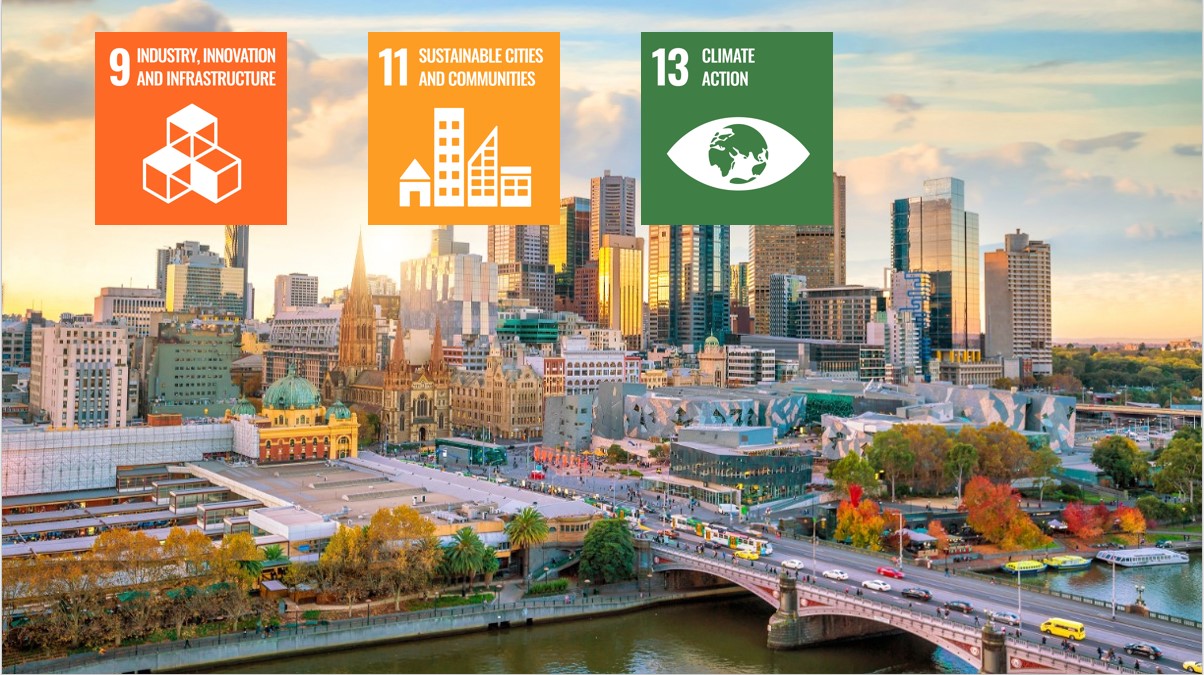
City of Melbourne's Climate Change Adaptation Strategy Refresh 2017 is an update of its first risk-focussed Climate Change Strategy which was released in 2009. the Strategy Refresh was triggered by changes that have occurred since 2009, including population growth projections increasing, updated climate science and projections, and policy settings both globally and nationally changing.
The updated strategy details how Melbourne will work towards the vision of a city that is adapting well to climate change and in particular address the need to create stronger partnerships with others and empower the community to act. New areas of focus include communicating with small and medium business to ensure they continue to prosper during extreme weather events; increasing permeable surfaces to reduce impacts of flooding; appropriately greening the city in both the public and private realm to help cool the city and improve biodiversity; and developing extreme weather plans to ensure support is provided to vulnerable communities during these events.
This strategy refresh aims to create a city that can adapt well to climate change and continue to prosper and thrive. Following the strategy refresh, Melbourne is able to share its approach, plans and actions with other councils and support them to establish their own adaptation plans.
More info:
https://www.c40.org/case_studies/melbourne-refresh
Buenos Aires, Argentina
"Citizens Ready Against Climate Change" Programme
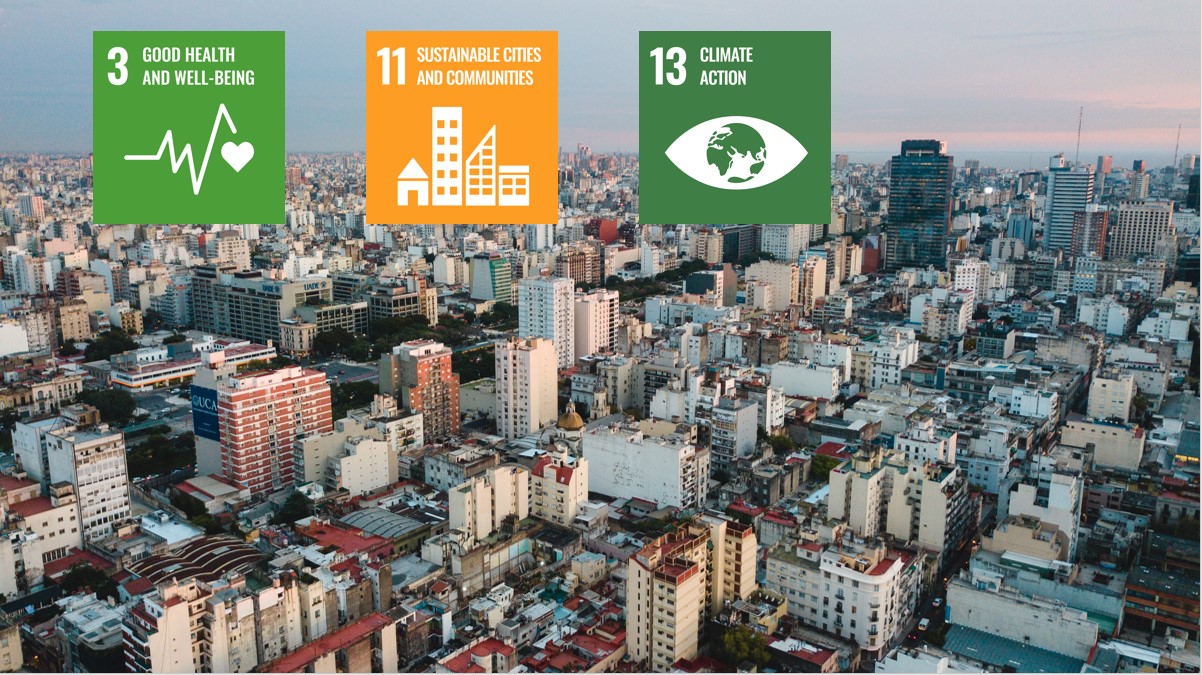
The Buenos Aires program "Citizens ready against climate change" began in 2017, due to concerns about the impacts of heat waves and floods. Particularly since 2014, a series of climatic events which impacted the infrastructure, and population health, including causing many deaths, caused the need for more information to raise awareness among the population about climate change and the importance of being prepared in the face of extreme climate events, and the proposal of concrete measures to address these issues.
Workshops were developed aimed at population groups of great vulnerability. The city focused on the elderly population to inform them about heat waves, and on the Matanza-Riachuelo Basin population to inform them about floods. Hence, the workshops allowed neighbours to come together to exchange views about climate issues and strategies to address them. Working with and empowering older adults is one of the innovations because not only is this age group interesting for their reflections and memories about the climate, but they have the ability to share ideas in the families and institutions in which they are part of.
Bringing out social benefits, the project aimed to empower citizens in the decision-making process, creating a space for articulation between government and neighbours, and generate spaces the exchange of strategies, informations and solutions regarding climate change among neighbours.
More info:
https://www.c40.org/case_studies/buenos-aires-citizens-ready-against-climate-change


 In Focus | World Cities Day: People-Centred Smart Cities
In Focus | World Cities Day: People-Centred Smart Cities City Stories | Fostering community resilience: A lifeline for the Central African Republic
City Stories | Fostering community resilience: A lifeline for the Central African Republic In Focus | Innovative Education, Empowering Futures
In Focus | Innovative Education, Empowering Futures




















 Tel: +86 020 3780 4434
Tel: +86 020 3780 4434 Email: info@guangzhouaward.org
Email: info@guangzhouaward.org Adress: Unit 01-7, 28th Floor, No. 7, Chunrong 3rd Road, Tianhe District, Guangzhou, Guangdong, 510000, PRC
Adress: Unit 01-7, 28th Floor, No. 7, Chunrong 3rd Road, Tianhe District, Guangzhou, Guangdong, 510000, PRC




